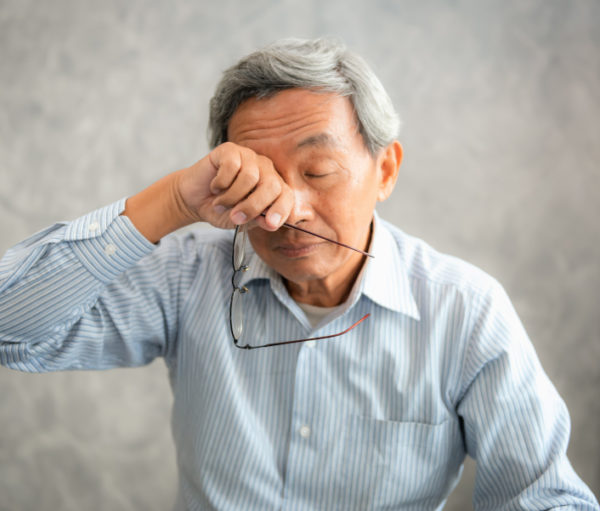Why Am I So Tired?

Most of us think of growing older as a time of slowing down. It’s true that many health conditions that become more common with age can sap our energy. Living with diabetes, heart disease, arthritis or even the side effects of some medications can make us feel like we’re moving in slo-mo! Managing those health challenges can go a long way in building up our energy level.
But sometimes the culprit can be found among our lifestyle choices. Here are ways to increase energy, even in our later years:
Keep up an exercise routine. It’s such a common cycle among older adults: If we’re less active, that leads to lower energy, which then leads to even less activity. Almost every older adult can benefit from adding more movement to their days. Talk to your doctor about a plan of physical activity that fits your needs and health condition.
Eat with energy in mind. Stuffing ourselves can send us to the couch to recover, and we might stay there! It’s often better to eat frequent, smaller meals and snacks to keep our blood sugar stable. Certain foods can make us feel sluggish in the short term, and sap our energy over time. Avoid processed foods. Instead, choose plenty of veggies, lean meats and whole grains. This can also help us maintain a healthy weight.
Get enough sleep. Nothing makes us feel more tired than a bout of insomnia. If you’re having trouble falling asleep or staying asleep, report this to your doctor. Even if you’re sleeping all night, you might be suffering from disorders such as apnea or sleep cycle disruptions. Fortunately, these can be treated.
Limit your alcohol intake. Yes, a glass of wine or a cocktail can relax us—but if we drink too much, we get too relaxed! Alcohol also disrupts our sleep, and might give us an energy-sapping hangover “the morning after.” And it can be dangerous to exercise if we aren’t in full control of our faculties.
Report feelings of depression. Depression in older adults might be a temporary response to life situations. But in many cases, depression is a disease that not only makes us feel sad, but also lethargic. Depression can be treated, so don’t wait to report symptoms to your doctor.
Address the stress. Stress increases our body’s level of cortisol, a hormone that over time can lead to fatigue and loss of strength. Talk to your doctor if you’re feeling stressed out. Counseling and techniques such as mindfulness and yoga can help reduce your stress.
Take a break. Sometimes our daily life can exhaust us! If you are caring for an older or disabled loved one, or if your job is stressful, or if you’re just in a rut, take a break. It’s important to carve out some “me time” to recharge your batteries. Talk to family, friends and professionals about helping you do that.
The information in this article is not intended to replace the advice of your healthcare provider. Talk to your doctor if you are feeling fatigued, or less energetic than usual.
Source: IlluminAge


